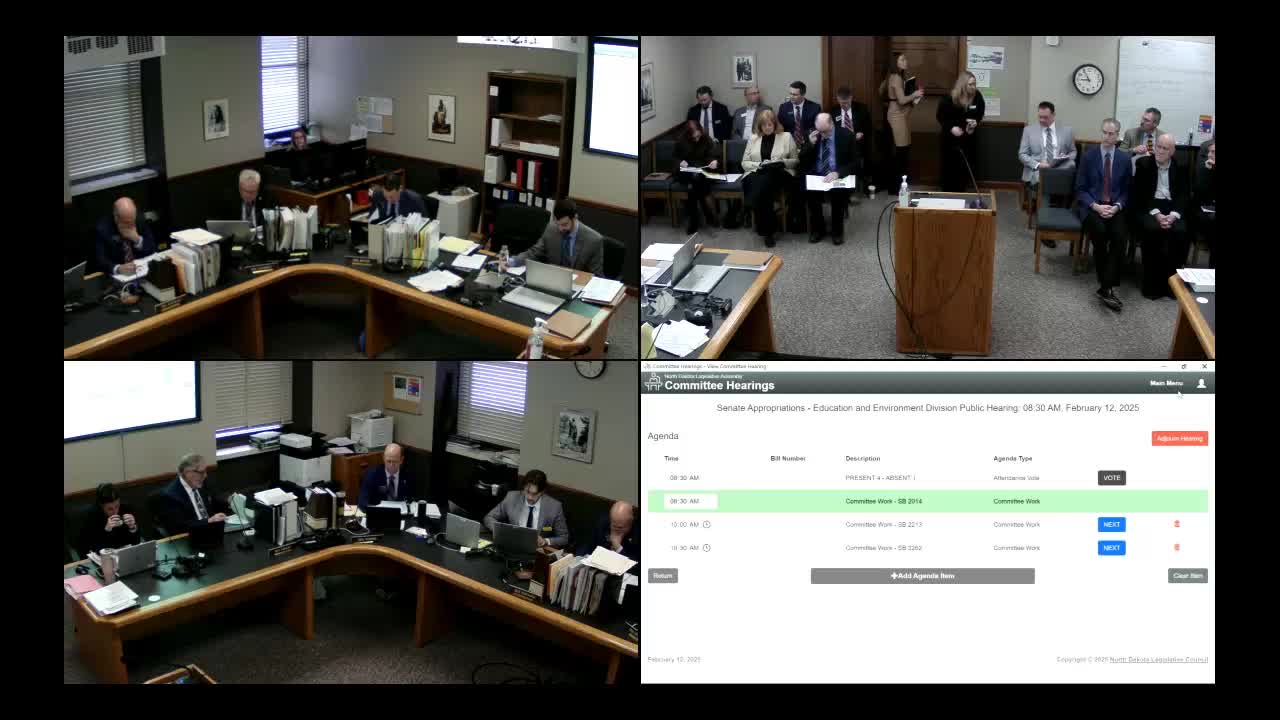Appropriations panel hears Mineral Resources request for three FTEs, reclamation work and rare‑earth study funding
Get AI-powered insights, summaries, and transcripts
Subscribe
Summary
The committee reviewed the Department of Mineral Resources budget with department leadership asking for three FTEs (permitting technician, reclamation specialist(s), administrative assistant), one‑time items for a rare‑earth analysis and archeological excavation, and continued funding for abandoned‑well reclamation and oil & gas litigation funds.
The Appropriations — Education and Environment Division reviewed the Department of Mineral Resources budget and discussed staffing, inspection and reclamation workload, and several one‑time projects, including a proposed rare‑earth element study and archeological excavation funding.
Nathan Anderson, director of the Department of Mineral Resources, told the committee the Armstrong budget recommends three FTEs — a permitting technician, a reclamation specialist and an administrative assistant — one more than the Burgum proposal. Anderson said the reclamation positions are needed because the department expects hundreds of new well locations each year and additional reclamation work that will increase field inspections. "Roughly 500 to 750 additional locations get built," Anderson said, and the department wants to place reclamation specialists in regional offices (Minot, Williston and Dickinson) to handle the workload.
Mark Borer, assistant director of the Oil and Gas Division, explained that permit fees and a portion of the extraction (production) tax feed the Abandoned Well Restoration Fund. Borer said the permit fee is $100 and also noted the fund receives a capped share of production tax receipts (committee discussion referenced a statutory cap). The department proposed $3 million in one‑time SIF funding for oil and gas litigation costs and is carrying one‑time SIF items for an archeology excavation project and a rare‑earth mineral analysis.
On permitting, Anderson said the department aims to process permits in roughly 30 to 40 days and that the character of permits is changing: "3 to 4 mile lateral permits are common which have a totally different unit requirements," he said, and that has added complexity to permit review.
Committee members asked about revenue sources for reclamation and whether permitting fee revenue or extraction tax transfers could cover additional positions. Borer confirmed a portion of the production tax and the $100 permit fees are mechanisms that credit the abandoned well fund. Committee staff noted continuing adjustments will be needed depending on passage or changes to related bills (the transcript references SB 23213 as pending committee action that could add workload and funding needs).
The committee did not record a formal roll‑call vote on the Mineral Resources staffing requests during this session; staff and members said they planned to revisit administrative and staffing decisions in subsequent budget work and after pending bills are resolved.
Ending: Committee leadership said they would return to the mineral resources administrative budget and the long funding sheet later in the week to finalize FTE decisions after other bill actions are clearer.
